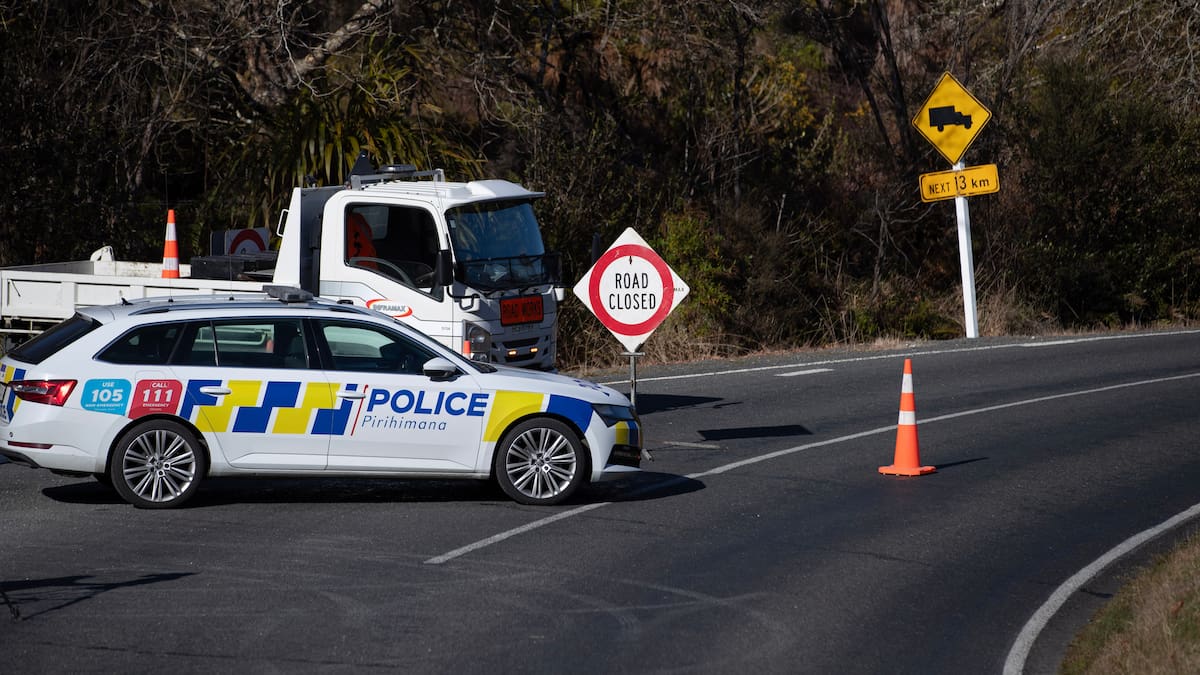“I think they [Stuff] would be trying to push it a bit to try and make those justifications, were a public interest defence available, and it certainly is not under this section.”
She said police had a right to be concerned about their investigation being potentially interfered with.
“I suspect the police are using this specific offence to avoid media trying to make a defence of public interest.
Police Commissioner Richard Chambers and Police Minister Mark Mitchell at a stand-up addressing the circumstances of Tom Phillips’ death. Photo / Dean Purcell
“They’re obviously very worried that it will interfere with the investigations going on at the moment, and I think those are reasonable concerns.”
She said prosecuting a media organisation under the Radiocommunications Act was unprecedented.
“It’s a hardly used provision.
“It is really an untested provision in relation to media.”
But she said fines of up to $30,000 for an individual and $200,000 for a body corporate could be given to those found in breach.
It comes after police said they were considering taking legal action over the publication of the audio.
In a statement released to RNZ on Thursday, Stuff editor in chief Keith Lynch told RNZ it resolutely stood by the story and the handling of it by its most senior journalists and editors.
“The death of Tom Phillips is not only of great public interest, but it is of public importance, particularly as speculation about exactly what happened that morning has been circulating on social media.
“Our journalists went to great lengths to ensure the veracity of the material we received and we treated the story with the utmost sensitivity, protecting the privacy of those involved and taking great care to ensure no one could be publicly identified while also avoiding any material which may be sensationalised.”
Police Commissioner Richard Chambers said the publication and use of the audio was a potential breach of s.133A of the Radiocommunications Act.
“It is extremely frustrating to have to take this step but it is crucial that sensitive operational matters are protected at this time.
“There are a number of inquiries and investigations underway into the critical incident in the Western Waikato early on Monday and such communications are evidence in such matters.”
Police Association president Chris Cahill told RNZ of his reaction when he saw the story.
“I was concerned police had released the information, I was pleased to see that wasn’t the case.
“I mean it has got to be remembered this is an active criminal investigation, it is a homicide investigation – someone’s died – and after that it’s a coronial investigation and this is crucial evidence in it.”
Cahill said he understood that from a journalistic perspective it seemed like a good story but did not think the media organisation looked at the full picture of what the story revealed.
He said that included potential details around police procedure and members of the public.
Chris Cahill. Photo / Mark Mitchell
He believed there were two ways the information was obtained, either through a leak at police or through a recording of the radio transmissions that were not encrypted.
“There are both those potentials, and we aren’t sure yet which they are.”
It would be “bad form” if someone from police leaked the information.
“If that’s the case I am very disappointed.”
Cahill said on the face of it there was a case to answer on whether the law had been breached.
“I mean Stuff will have to answer why they thought they weren’t breaching that act.”

